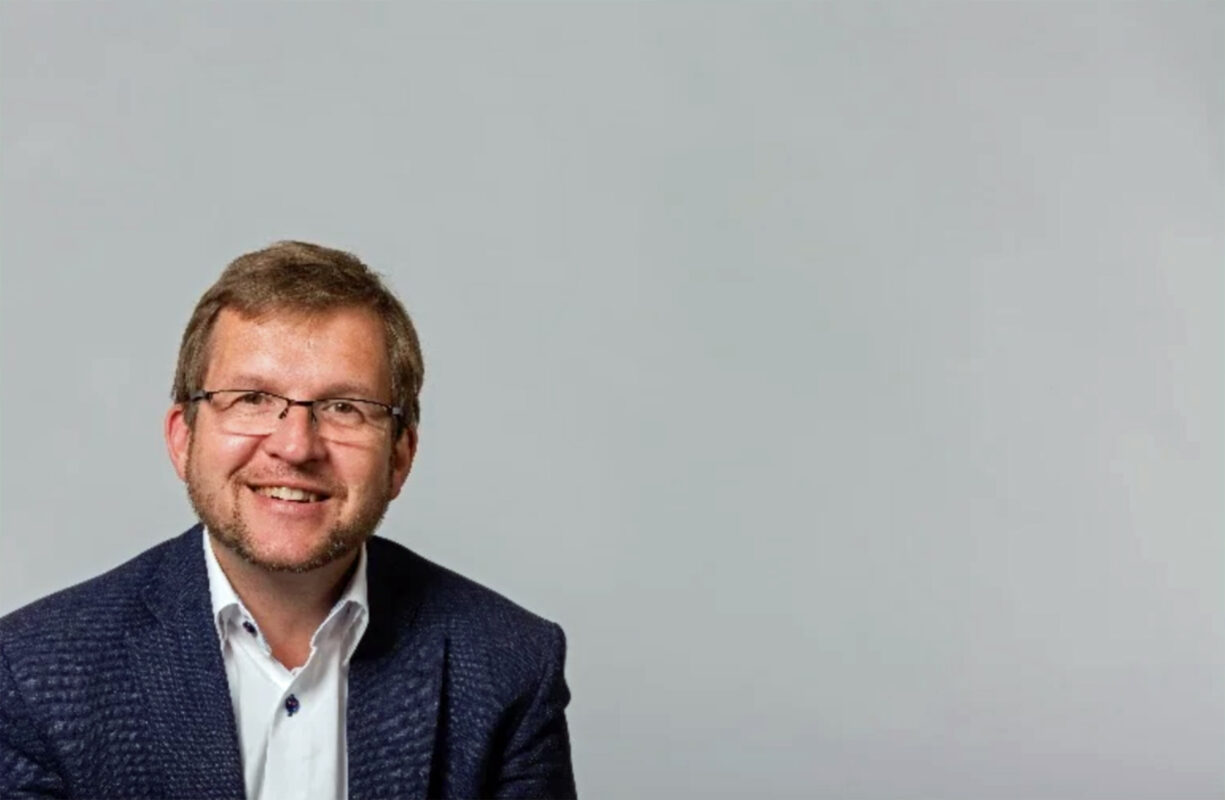A new Co-President and a new Co-President of the SMV
At the DM on May 19 this year, the delegates elected four new members of the Board of Directors, who we present to you here. The new Co-Presidents also answered a few questions for us.
Muriel Noble was born in Lausanne and began playing the violin at the age of six. In addition to her secondary school education and meeting Rose Hemmerling-Dumur, she studied in Patrick Genet's professional class at the Fribourg Conservatoire, where she obtained her teaching diploma with distinction. After winning a prize in the Jeunesses Musicales Suisse competition, she decided to devote herself exclusively to music. She continued her musical training with Margarita Karafilova at the Coservatoire in Lausanne, where she graduated with the "Premier prix de virtuosité avec les félicitations du jury". She attended master classes with Franco Gulli, Philippe Hirshhorn and Raphaël Oleg, among others. Muriel has been a member of the first violin section of the Orchestre de la Suisse Romande since August 2000. She performs in Switzerland and abroad with various chamber music ensembles, such as the Trio Ré-Fa-Si Tango and the Trio Acor.
What are the reasons that prompted you to run for Co-President of the SMV?
Muriel Noble: Having been secretary of the Geneva section of the SMV for several years and having experienced and seen where the problems of the musicians lie, I felt like investing my energy directly where the decisions are made and where action is taken, namely on the central board of the SMV.
It has always been particularly important to me to stand up for the interests of the self-employed and freelancers, whether it was compliance with the minimum wage, which is set by the SMV and is far from being respected everywhere, or the right to maternity pay, the right to unemployment benefits or simply respect for the musician's profession.
What topics would you like to focus on in the coming years?
I would like to champion our brand new Commission for Equality and Diversity (see the article on the SMV pages in the last issue of SMZ) and develop it further, for example with webinars and recommendations for all Swiss orchestras on how to tackle all forms of discrimination on the ground. Outlawing the latter in the arts scene is extremely important and urgent, and it must also be clearly emphasized that the SMV advocates zero tolerance for bullying, racism and unequal treatment based on gender.
I would also like to inform people that the development of a fetus can suffer from noise exposure, which is still too little known, and to remove the taboos surrounding some illnesses of musicians.
And finally, we must continue to defend the SMV's minimum fee: it is a shame to see that Swiss ensembles and festivals still do not respect this minimum fee and underpay their professional musicians under various pretexts.
How do you see the development of trade union work in the orchestra over the last few years and in the coming years?
In the orchestras with a collective labor agreement, the work of the SMV has been and still is crowned with success, and the administrations adhere to the agreements as far as their permanently employed musicians are concerned.
Unfortunately, it has to be said that the rights of temporary staff are not always respected.
Moreover, we must remember that no right is won forever: we must all constantly defend our rights.
-
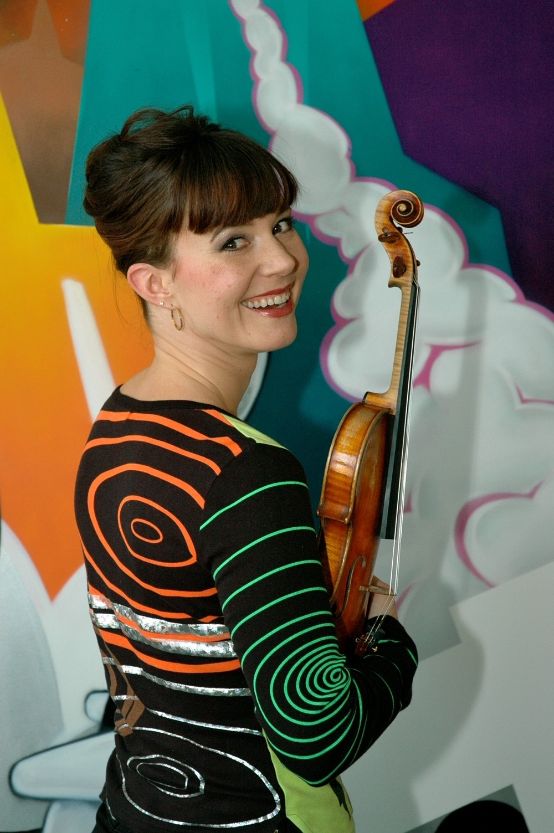
- Jacques Noble
- Muriel Noble
Davide Jäger was born in Ticino in 1981. He received important musical impulses from his first oboe teacher Federico Cicoria and the famous violinist Peter Rybar, who was a mentor to him. After an intermediate year in the concert class of the Lugano Conservatory with Hans Elhorst, he first obtained his concert diploma and later his soloist diploma in the class of Simon Fuchs at the Zurich University of the Arts. Davide Jäger has performed as a soloist with the Zurich Chamber Orchestra, the Graubünden Chamber Philharmonic Orchestra, the Orchestra della Svizzera Italiana and the Young European Philharmonic Orchestra. Following engagements as principal oboist with the Graubünden Chamber Philharmonic Orchestra and as a member of the Zurich Tonhalle Orchestra, the Orchestra della Svizzera Italiana and other professional orchestras in Switzerland and abroad, he plays in the St. Gallen Symphony Orchestra as deputy principal oboist and cor anglais player.
What are the reasons that prompted you to run for Co-President of the SMV?
Davide Jäger: After serving as President of the Orchestra Board of the St. Gallen Symphony Orchestra since 2014, I felt ready for a change. I really value trade union work and it is very important for me to work to improve the working conditions of musicians. But I felt the need to do it in a different way. The fact that a position as Co-President of the SMV became available came at just the right time, and the prospect of union activity at a higher, namely national, level persuaded me to run.
What topics would you like to focus on in the coming years?
There are many topics that interest me, but if I had to make a choice, I would first and foremost opt for political work in favor of the SMV tariff. There are still too many cultural institutions and concert organizers that do not pay musicians our minimum rate and the associated expenses. The SMV tariff must become the basis for all temporary musical employment at national level. It is clear that this will only be possible if more money is invested in culture in general, throughout the country. This is precisely what we need to fight for, because every extra franc spent on culture makes the world a better place.
How do you see the development of trade union work in the orchestra over the last few years and in the coming years?
I have noticed a fairly widespread tendency in orchestras not to take an interest in union matters. It's becoming increasingly difficult to find volunteers who want to work on the committees, for example, while at the same time people complain when things don't work out. My advice, especially to young musicians, is to give trade union work a try. This is the only way to find out what it consists of and to learn to distinguish between what is possible and what is not. At the same time, it is our trade union responsibility to make young musicians aware of their trade union rights as early as possible, preferably during their studies.
-
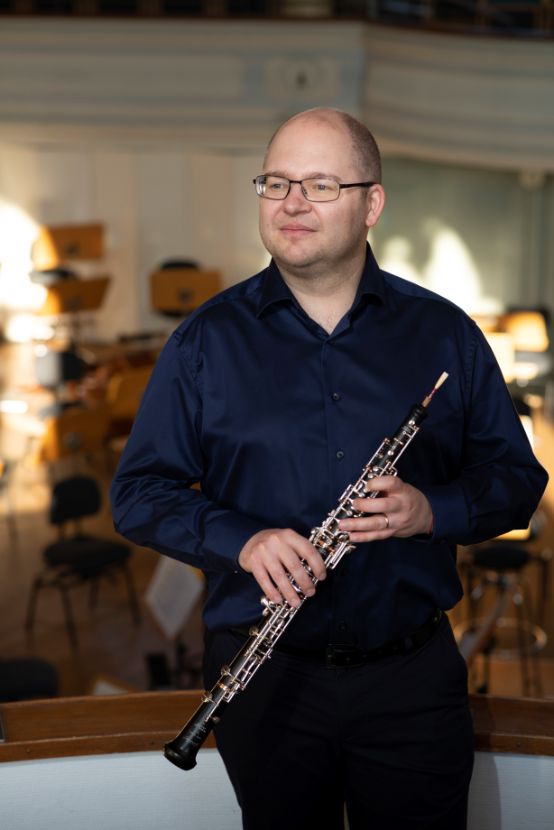
- © D'Artanyan
- Davide Jäger
Markus Forrer spent his childhood in Dübendorf and Milwaukee, USA. After graduating from high school, he moved to Basel, where he studied with Hans Rudolf Stalder and, after his retirement, with François Benda. He then completed his studies with George Pieterson in Amsterdam. In 2000, he took up his position as 2nd clarinettist and E flat clarinettist in the Basel Symphony Orchestra. A few years later, as section president of the SMV, Markus Forrer was involved in the unavoidable downsizing of the SOB due to subsidy cuts. In order to avoid redundancies, a number of positions had to be reduced, including his own. The difficult situation in Basel enabled him to take a three-year sabbatical in New York, where he taught clarinet and recorder in the classrooms of the South Bronx as an "artist teacher". During this time, he also directed a clarinet festival in Montevideo for three years. Markus Forrer now lives with his family in Basel. He is now once again employed by the SOB at 100%. He also enjoys playing chamber music with friends, occasionally performing as a soloist, playing historical instruments, organizing concerts and is looking forward to his new role as a member of the Central Committee.
-
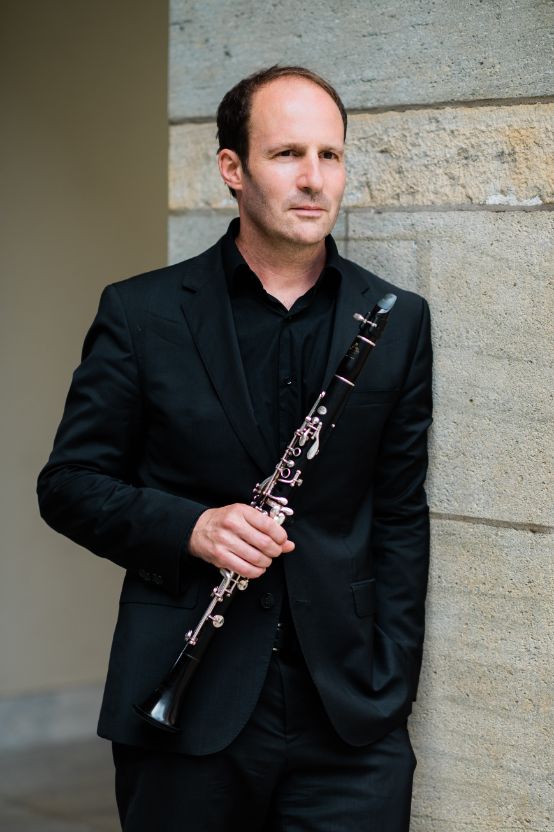
- @ Amanda Joy
- Markus Forrer
Sebastian Schindler studied horn at the Basel Music Academy from 2001-2003 with Prof. Christian Lampert and Horst Ziegler (assistant). From 2011-2013 he studied Master Pedagogy at the HKB Bern, majoring in natural horn with Prof. Thomas Müller and minoring in conducting wind music with Ludwig Wicki and Dominique Roggen. He has been deputy principal horn of the Bern Symphony Orchestra since the 2008/2009 season. He has been teaching his own horn class at the Seeland Ins music school since 2015. In 2018, he led the horn ensemble at the international horn festival "Carneval de Cor" in Munich. From 2013-2018 he was president of the SMV section Bern.
-
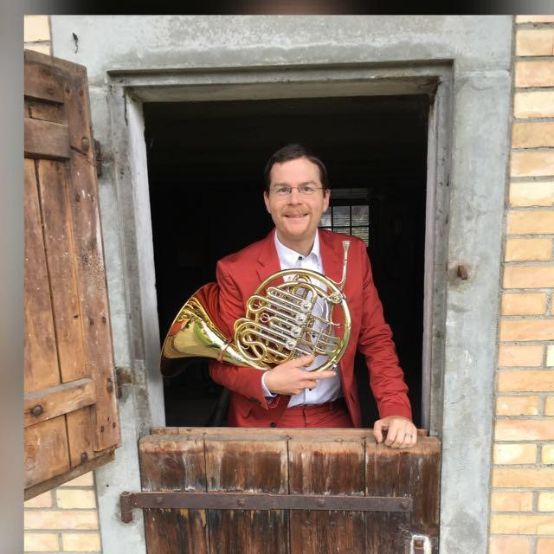
- @ Monika Schindler
- Sebastian Schindler






